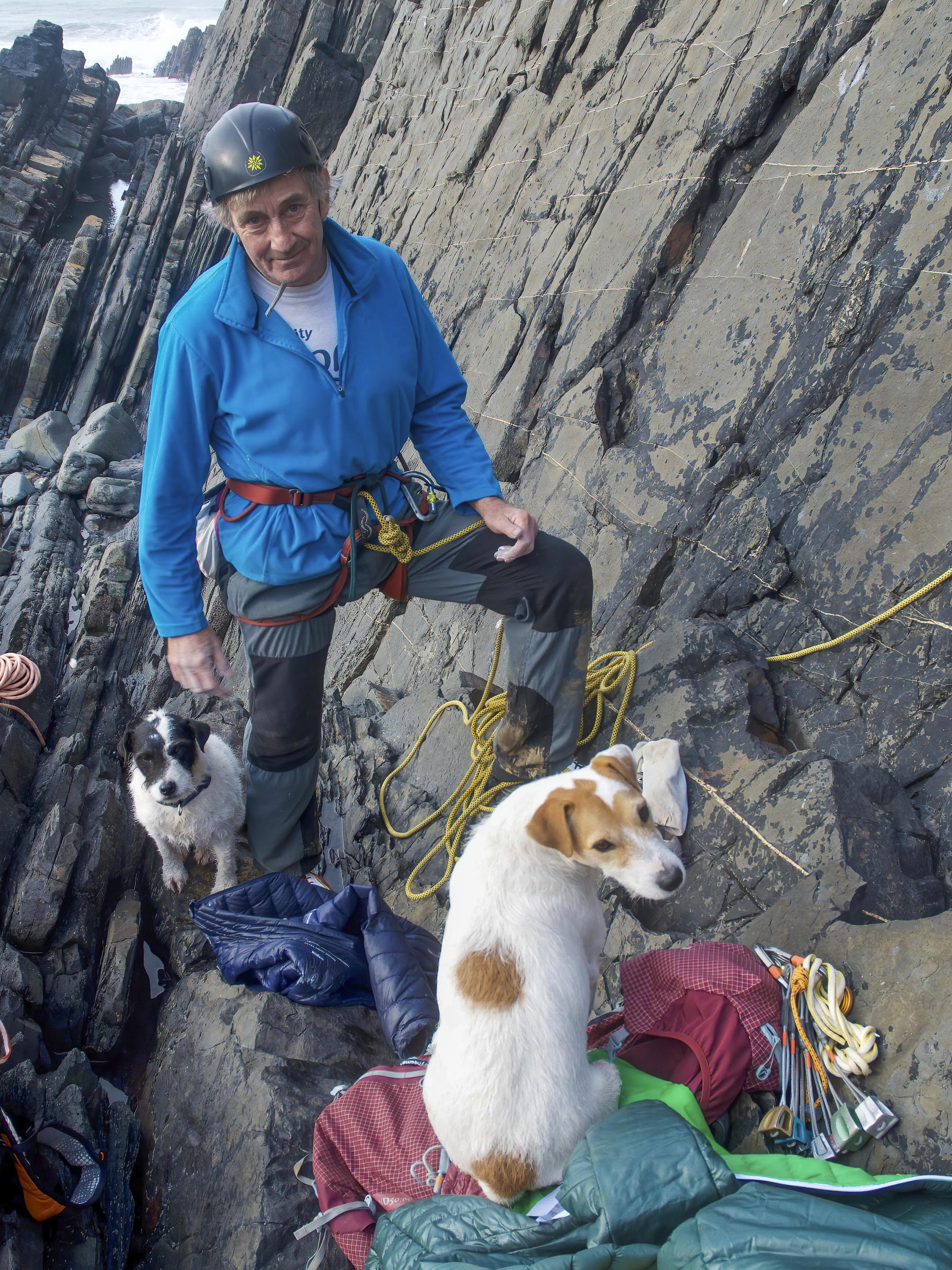"An Incurable Optimist" Part 1
Posted by Jeremy Windsor on Feb 28, 2025
Earlier this year climber and mountaineer Iain Peters published his autobiography "The Corridor". Amongst his many climbing exploits, Iain reveals the sexual abuse he experienced at the hands of one of his teachers. As one reviewer put it, climbing proved to be a "lifeline" that led eventually to, "a life fulfilled and lived with joy". Here's retired psychiatrist Dr Tony Page to tell us more...
This is not the usual climber’s autobiography. Of course, as you’d expect, it covers a lifetime of outdoor activity, most, though not all of it on the cliffs and in the mountains. Iain Peters began climbing at the age of five or six with his grandfather, Climbers’ Club stalwart and retired rear admiral Keith Lawder. Iain went on to progress from youthful activism through guidebook writing (the Climbers’ Club guidebook to North Devon and Cornwall, 1988) and on to expeditions to unclimbed peaks in Tierra del Fuego. He writes: ‘For me, high on a sheer sheet of rock, waves below and sky above, there is no troubled past, no uncertain future, just the now of being.’ This, however, is only part of his story. Note the ‘troubled past’ reference.
Iain’s first few years were spent in the south-west, and then he, his mother and twin older sisters moved to Kenya to join his army officer father, who had been posted there during the Mau Mau rebellion. Two years later he returned to the UK, without his family, to attend prep school and the four years he spent there changed the course of his life. He, and some other pupils, were repeatedly sexually abused and raped by a charismatic geography teacher, a climber and mountaineer who went on to become a presenter on children’s television and to run an outdoor centre. The title of Iain’s book refers to the passage leading to this man’s room.
After prep school, Iain moved on to a fee-paying boarding school for older boys. Students here experienced a different sort of abuse - a casually brutal regime of corporal punishment where beatings were sanctioned and their employment by senior pupils, not just staff members, was normalised. Iain did well academically but was a rebel, his final act of dissent being a decision not to stay on after A levels to prepare to enter for a scholarship to Cambridge. This incensed the headmaster and set Iain on a career path that would not have been expected for someone of his background. Only years later, with much effort, with the support of others and through counselling, has he been able to make sense of his experiences and the life choices he has made. He is unsparing in recognising his tendency to challenge authority, to run away from difficulties, and open about his not always admirable conduct in relationships. After leaving school Iain worked as a junior temporary outdoor instructor, then as a cellarman at a Leeds nightclub. Promoted to barman he was expected to serve watered-down whisky and sell Purple Hearts to the customers. However, he got on the wrong side of a waiter-cum-bouncer, and decided the safest thing was to return to Devon. He entered a relationship with an older woman who was a family friend. They were together for nearly 20 years, though he had affairs with women more his own age. He became increasingly involved in arboriculture, and part-funded expeditions to South America by collecting seeds for botanical gardens and university botany departments. It was on one of these expeditions he met his wife-to-be. They started a family and married in 1989.

More information about Iain Peters and his book "The Corridor" can be found here
Early one morning in summer 2014, sleepless with the stresses of trying to deal with the care of his old and frailmother and criticism from his sisters about this, of a legal dispute concerning the terms of his late stepfather’s will, and of his wife’s cancer diagnosis, he found himself writing an account of the sexual abuse he’d experienced 57 years earlier. In the autumn of that year, on an errand, he stopped to take a shopping list out of his pocket but pulled out the account of him being raped. He was standing outside a police station, went in, and handed the account to the receptionist. The police took him seriously and his abuser, elderly but still alive, was charged and in early 2017 pleaded guilty to six offences,resulting in a custodial sentence. By this time Iain had confided in a good friend who suggested he contact a counsellor. Through counselling, Iain began to deal with the guilt and the shame, and to understand how the sexual assaults had affected the course of his life. As he puts it, this was ‘a long and painful process’.
In spite of it all, Iain describes himself as ‘an incurable optimist’ and he writes: ‘Only recently, very late in life, through the love of family, friends and help from so many others, have I come to the conclusion that shadow can only exist when the sun is shining, even when that shadow appears to blot out all light.’ He unflinchingly confronts the shame and stigma of having been sexually abused, but even so, the book is not without touches of dark humour. Readers of this blog will be drawn to the climbing that runs as a thread through the book, and though Iain does not suggest it has been his salvation, he nevertheless observes: ‘climbing has been the one constant reality, a connection to the truth…where I never needed to deceive myself’.
It is not uncommon for climbing biographies or autobiographies to be reviewed in this blog, but Iain’s book is different. Though it is at times an undeniably uncomfortable read, it is also a frank, moving, and ultimately hopeful testimony. I strongly recommend it.
Thanks Tony!
Copies of Iain's book can be bought here.
If this is your sort of thing why not take a look at other posts on the blog?
Better still, why not join the British Mountain Medicine Society! More information can be found here.
For more on the University of Central Lancashire's Diploma in Mountain Medicine take a look at this.
Comments
Leave a comment.
Leave a comment.



 )
)